Arab League Chief Voices Concern Over Iranian Threats In The Region
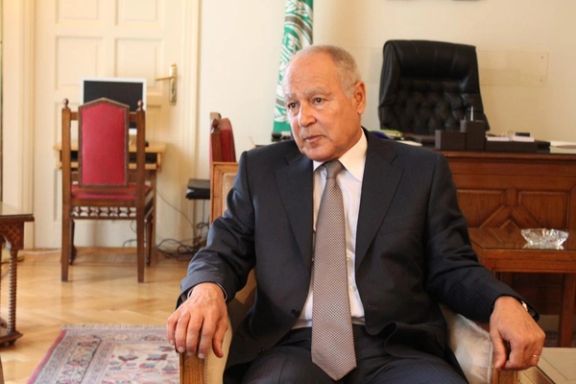
The Secretary General of the Arab League has said Iran wants to control the Straits of Hormuz and the Bab al-Mandab either directly or through proxies it funds.

The Secretary General of the Arab League has said Iran wants to control the Straits of Hormuz and the Bab al-Mandab either directly or through proxies it funds.
Ahmed Aboul Gheit said during the Rome Mediterranean Dialogue mentioning attacks carried out in the 2019 in the Persian Gulf and against Saudi oil installations, as well as Houthi threats to navigation in the Red Sea highlighted Iran’s policies in the region.
The Arab League issued a statement on Saturday quoting Aboul Gheit as having said that both straits are vital for the global economy and protection of navigation in these areas should be a global priority.
Persian Gulf Arab states and their Sunni allies such as Egypt are concerned at Iran’s regional policy of creating and supporting militant groups to expand its influence.
Aboul Gheit said that Iran’s behavior and actions are the reason why it is difficult to establish a security system in the Persian Gulf. Iranian officials often boast of their influence in the region, which largely rests on Shiite proxy forces.
He added that he hopes ongoing negotiations would dissuade Iran from pursuing its policies. Both Saudi Arabia and the United Arab Emirates have begun engaging Iran in talks to reduce tensions.
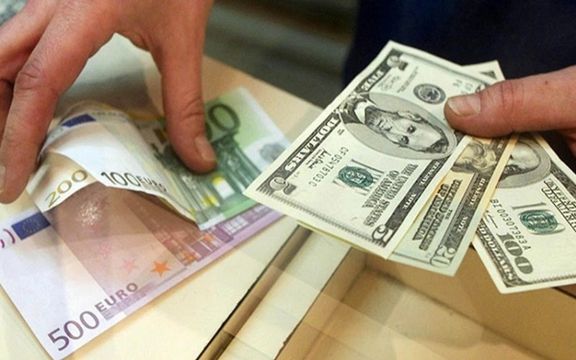
The decline in the value of Iran’s currency continued Sunday, after disappointing nuclear talks with world powers in Vienna added to economic uncertainty.
The free market value of the US dollar in Tehran shot up to 300,500 rials Sunday, a historic low for the battered currency. On Saturday the dollar had reached to just over 300,000 rials.
Despite government efforts to claim that the nuclear negotiations are not dead and could continue in a few days, the public remained unconvinced, buying more dollars.
The government feeling market demand restricted access to dollars at official exchange outlets earlier in the week, but the move led to demand shifting to unofficial dealers.
The current exchange rate shows the rial has fallen 4,500-fold since the Islamic Republic was set up in 1979. During the monarchy one US dollar was equal to just 70 rials.
The Iranian currency has fallen more than ninefold since early 2018, when it became apparent that then-president Donald Trump was inclined to leave the JCPOA and impose sanctions on Iran. He did so in May of that year and the rial has kept falling ever since.
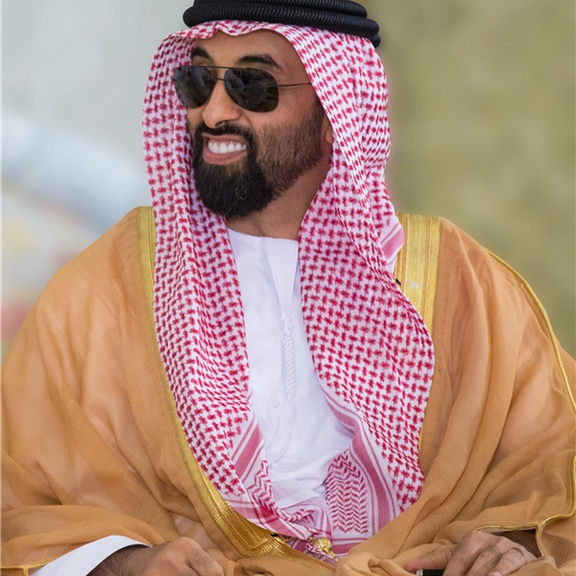
The United Arab Emirates' top national security adviser Sheikh Tahnoon bin Zayed Al Nahyan will visit Tehran on Monday to discuss ways to expand bilateral ties.
The visit comes a week after negotiations between Iran and major powers resumed in Vienna to revive a 2015 nuclear deal (JCPOA), lift US sanctions on Iran and put a stop to escalations in Tehran's nuclear program.
Reports have indicated that the UAE might be hedging its bets given a desire by the Biden Administration to revive the JCPOA and by the US exit from Afghanistan. The general perception is that Washington has shifted its focus to China and east Asia.
Sheikh Tahnoon is expected to meet his counterpart, the Supreme National Security Council's Secretary General Ali Shamkhani, Noor News, affiliated with the Council said.
Sheikh Tahnoon is a brother of the country’s de facto ruler Abu Dhabi Crown Prince Mohammed bin Zayed.
Anwar Gargash, diplomatic adviser to the UAE president, said last month that his country was "taking steps to de-escalate tensions with Iran as part of a policy choice towards diplomacy and away from confrontation."
The Emirati diplomat said the UAE remained deeply concerned about Iran's behavior in Iraq, Syria, Yemen, Lebanon.
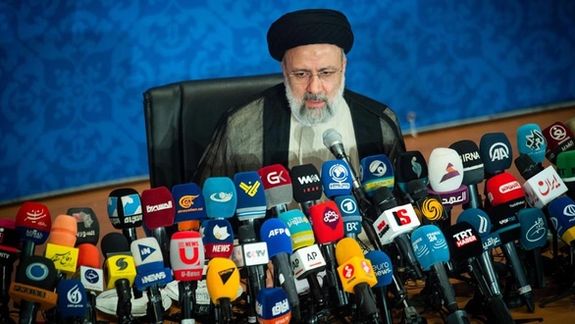
Economic and trade ties between Iran and Venezuela should expand Iran’s President Ebrahim Raisi told his counterpart Nicolas Maduro in a phone call on Saturday.
Raisi told Maduro that bilateral relations between the two countries are strategic and emphasized that ties should expand during his administration that came into office in August. He added that bilateral ties should be strengthened specially in trade and economy.
Tehran has established close relations with Caracas in the past 15 years and has defied US sanctions on both countries by shipping fuel across the Atlantic to prop up the beleaguered Maduro government. The Trump administration seized one such large shipment and auctioned off the cargo.
Raisi also emphasized the quest of both countries to defy the United States, saying that “we will continue the path of progress.” He also highlighted the need for more cooperation in the energy sector and congratulated Maduro for the recent elections in his country.
US sanctions have battered the economy of the two countries as they are unable to export oil to global markets and their national currencies have nosedived in recent years.
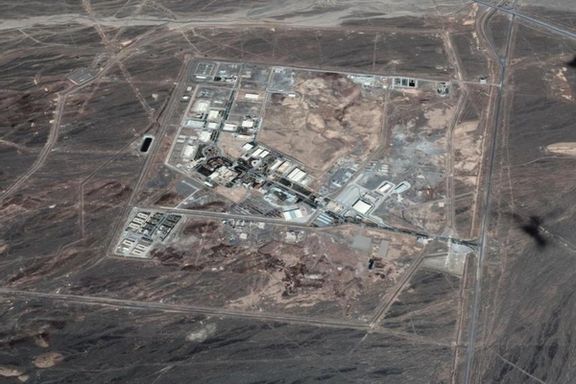
The chief of air defense at Iran's nuclear facility in Natanz says they tested a missile to check preparedness in the region, after a loud explosion was heard.
Iranian air defenses fired a missile as part of an exercise on Saturday over the central town of Natanz, which houses nuclear installations, state TV reported, after local residents reported hearing a large blast.
The TV said air defense units fired the missile to test a rapid reaction force over Natanz.
Iranian news agencies earlier reported a large explosion in the sky above Natanz, but said there was no official explanation of the incident.
The semi-official Fars news agency quoted its reporter in nearby Badroud as saying a short blast was heard which was accompanied by an intense light in the sky.
Natanz was twice the target of highly destructive sabotage attacks in July 2020 and April 2021, widely attributed to Israel. Amid nuclear talks with Iran, Israel has repeatedly warned that it will not tolerate a nuclear Iran and will take action to stop Tehran from acquiring nuclear weapons.
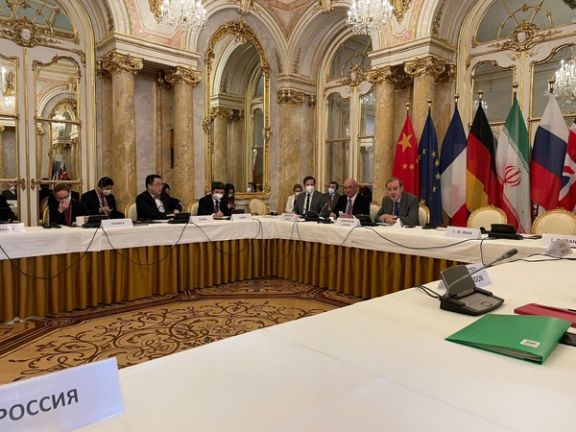
In the wake of unsuccessful nuclear negotiations in Vienna, some state media in Iran on Saturday tried to put a more positive spin saying talks will continue.
Western media including British newspaper Guardianhave covered the end of the seventh round of nuclear negotiations saying that the talks "were suspended on Friday, with Europe warning that Iran had walked back on all previous diplomatic progress and fast-forwarded its nuclear programme." But some Iranian media including the IRGC-linked newspaper Javan have described the event as "European and US partners of the JCPOA taking Iran's proposals home with them for consultations in their capitals."
At the same time, other media such as proreform website Fararu have opined that "The nuclear talks are not about Iran's nuclear program. They are about a new, emerging world order as the United States' power is declining." Fararu furthermore quoted British journalist Peter Oborne as saying that the nuclear talks mark the beginning of a new Cold War in which instead of the United States and the Soviet Union, now China and the US are facing each other. Fararu quoted him as saying that this new Cold War started as the US hurriedly withdrew from Afghanistan and turned its focus to Asia.
The administration-owned daily newspaper Iran ran an optimistic front-page headline: "Laying the foundations for lifting the sanctions."
But Kar-o-Kargar daily, close to former Rouhani spokesman Ali Rabiei, ran an utterly pessimistic front-page headline: "The shadow of despair on the negotiating table." While Iran believes that the talks are going to be resumed next week, Kar-o-Kargar said that the talks have come to end for good.
Economic daily Asia took a position in between the two and quoted reformist lawmaker Massouid Pezeshkian as saying that negotiations would be meaningless without "give and take" and suggested that if Iran is looking for a solution to its economic problems, its nuclear negotiators should return to the talks next week.
Foreign policy analyst Ali Bigdeli told Setareh Sobh daily that Iran should withdraw its excessive demands and stick to a minimal request for lifting some of the sanctions.
Another economic daily, Jahan-e Sanat discussed the negotiations with several Iranian experts in a series of debates that were primarily focused on the role of China in the nuclear talks. Observers generally said that China appeared to be silent during this round of the negotiations. Experts told Jahan-e Sanat that the suspension of the talks is in China's interest and that China favors a situation where Iran and the West do not reach an agreement.
Jalal Sadatian, a former Iranian diplomat, told the daily that China is worried about any improvement in Iran's ties with the West. He added that both China and Russia benefit from the sanctions on Iran. Particularly China benefits from being the sole customer for Iran's oil.
Another former diplomat, Fereidoun Majlesi, agreed with Sadatian and said that "thanks to the sanctions, China has now monopolized trade with Iran and is using the situation to sell everything at a higher price while buying Iran's oil at unbelievable discounts."
Asked why Iran counts on China and Russia as its supporters in the nuclear negotiations, Majlesi said: "Iran feels committed to enmity with the United States and this brings it close to China from an ideological standpoint." He further said that Iran is isolated in the international community but likes to say that there are countries such as China that are Iran's allies.
Mohammad Marandi, a member of the Iranian negotiating team as well as some Iranian officials in Tehran said on Friday that that Iran will turn to China if the United States refuses to return to the JCPOA.
Ironically, Iranian journalist and historian Hossein Dehbashi revealed on Twitter on Saturday that Marandi is a US citizen and questioned his support for Iran in the negotiations. Marandi in his response posted a picture on Twitter and claimed the photo shows him in Basij militia uniform when he was 16.